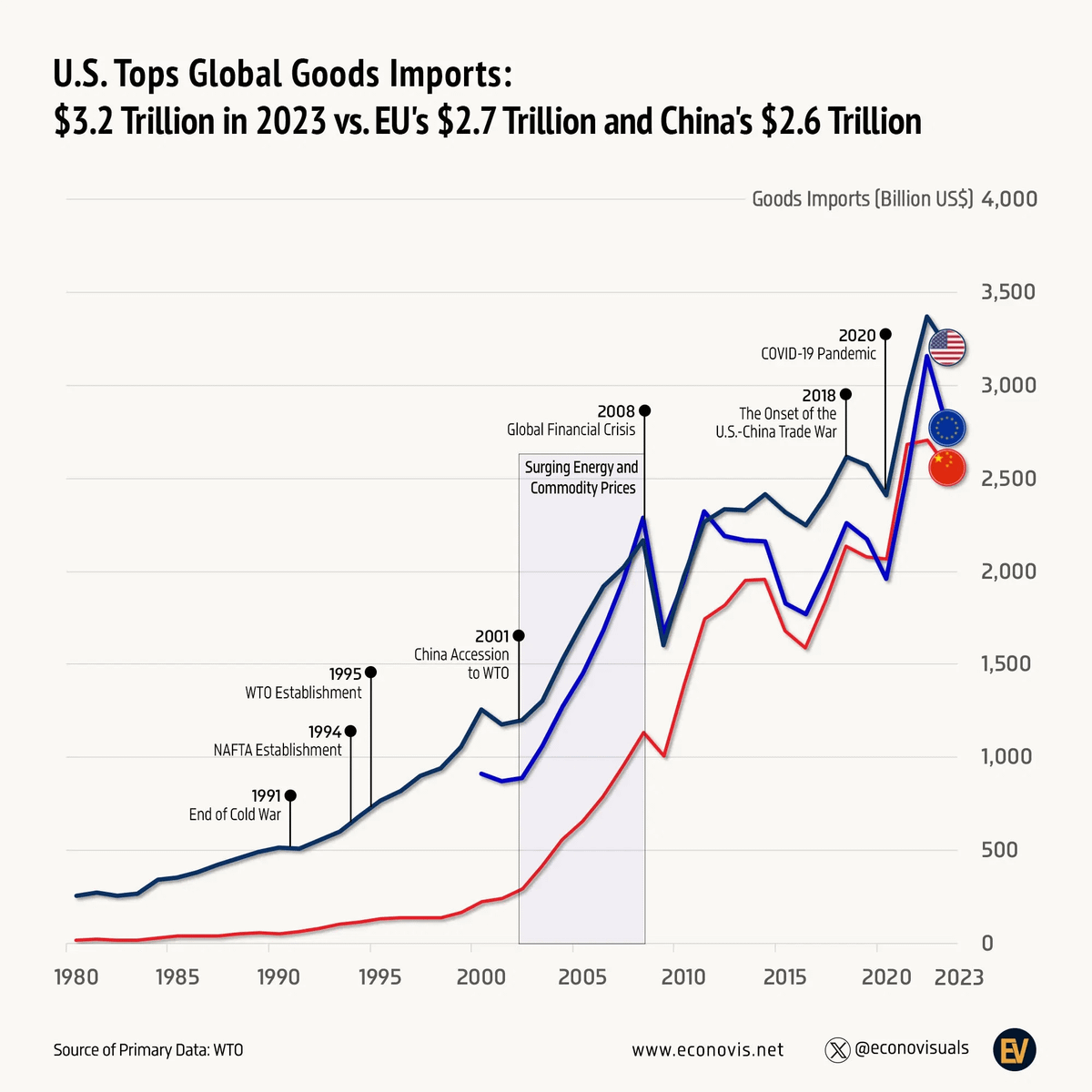WARNING: The secret UN carbon tax that's about to fleece America
Next week, the UN votes on an ocean carbon tax that would spike the price of many consumer goods. The Trump administration must not allow this Biden climate policy to quietly take effect.
Next week, the UN votes on an ocean carbon tax that would spike the price of food, fuel, and everyday essentials—hitting America the hardest.
Here’s what the administration and Congress can do to stop this in its tracks.1
The UN’s International Maritime Organization (IMO) is supposed to ensure safe shipping around the world.
Instead, it’s pushing a carbon tax on shipping fuel, with proposals ranging from $19 to $150/ton of CO2—the equivalent of adding $1.29 to the price of gasoline!2A $150/ton carbon tax on shipping would double fuel costs for large ships.
The marine fuel oil used to power most large ships costs ~$400/ton. Since burning one ton of marine fuel oil produces ~3.2 tons of CO2, a $150/ton carbon tax adds ~$480/ton—roughly doubling today’s price.3Higher fuel costs from an ocean carbon tax would in turn spike the price of essential goods like food, fuel, and clothing worldwide. Since these goods are largely shipped by sea, 2x higher marine fuel costs mean higher shipping expenses that are passed directly to consumers.
Since the US is the world’s largest importer of goods, with $3.2 trillion in imports including $760 billion for consumer goods per year, an ocean carbon tax would disproportionately raise prices for US consumers and businesses.
An ocean carbon tax is a tax on America most of all.4The idea of a maritime carbon tax originates in the “2023 GHG IMO Strategy,” a Biden-backed document that commits UN members to a goal of net-zero international shipping emissions by 2050.
The Trump administration must not allow this Biden climate policy to quietly take effect.5How the state department can stop the ocean carbon tax
The state department, led by Marco Rubio, can formally withdraw US support for the “2023 IMO GHG Strategy,” vote NO on the ocean carbon tax to at next week’s IMO meeting—and urge our allies to follow suit.How the EPA and the Coast Guard can stop the ocean carbon tax
The EPA, led by Administrator Lee Zeldin, and the Coast Guard, led by Admiral Kevin Lunday, can prohibit their agencies from enforcing any international or global carbon tax unless explicitly ratified by the US Senate.How the Senate can stop the ocean carbon tax
The Senate, including Majority Leader John Thune and Energy Chairman Mike Lee, can make clear that it considers the US signing an ocean carbon tax a treaty-level decision that requires Senate confirmation, which will not be forthcoming.Recent reports indicate that the EU may push to replace the ocean carbon tax with a cap-and-trade system.
While marginally less damaging, this policy would still be toxic for America and the global economy, and the US should vehemently oppose it.6
Michelle Hung contributed to this piece.
Questions about this article? Ask AlexAI, my chatbot for energy and climate answers:
Popular links
EnergyTalkingPoints.com: Hundreds of concise, powerful, well-referenced talking points on energy, environmental, and climate issues.
My new book Fossil Future: Why Global Human Flourishing Requires More Oil, Coal, and Natural Gas—Not Less.
“Energy Talking Points by Alex Epstein” is my free Substack newsletter designed to give as many people as possible access to concise, powerful, well-referenced talking points on the latest energy, environmental, and climate issues from a pro-human, pro-energy perspective.






IMO, the Administration should reject all laws and policies that are based on the premise that human-emitted CO2 is a pollutant or in any way dangerous.